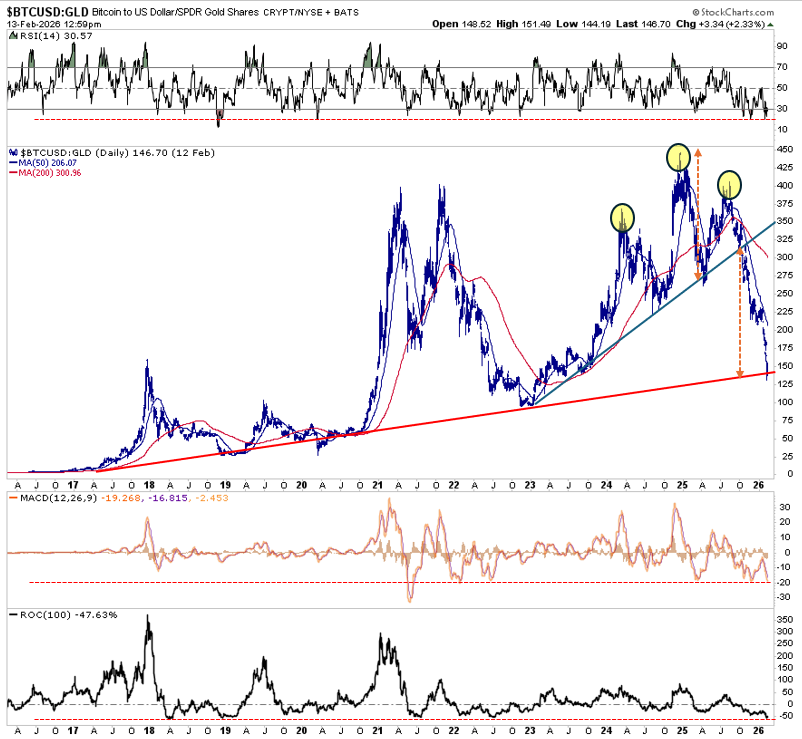Abundance, Generosity, and the State: An Inquiry into Economic Principles
by Jörg Guido Hülsmann
Ludwig von Mises Institute, 2024; 452 pp.
It is rare to encounter a book that has the potential to reshape the way we look at economics, but Guido Hülsmann has done exactly that in Abundance, Generosity, and the State. Hülsmann is one of the leading theorists of the Austrian School, but he has always looked at issues in an original way, and that quality is manifested “abundantly” in this outstanding book.
In what way is this so? The free market is often portrayed as the realm in which people make exchanges to their mutual benefit. Ludwig von Mises constantly emphasized this theme, viewing social cooperation in the free market as a major advance from the struggles pervasive in biological evolution. In free market exchanges, Mises says, each person both gives up and gains something.
Hülsmann does not deny Mises’s point: he too stresses the great value of such exchanges. He contends, however, that vital as such reciprocal trades are, they are not the most important characteristic of the free market. Pride of place goes to gratuity. People benefit one another, both intentionally and unintentionally, without the expectation of return, and we benefit from the gratuity of nature. Indeed, we could not engage in mutually beneficial exchanges were it not for the gratuitous benefits that our adopting the virtues of honesty and trustworthiness conveys to others.
Something that is gratuitous must go beyond what is required, and here Hülsmann makes an essential point. If an action is unjust, it goes against what is required, not beyond it; hence, due to its nature, it cannot count as gratuitous. You can only donate to people what is rightfully yours. This at once raises a question: How can we know what is rightfully our own? Hülsmann’s answer is that only a system of private property, based on the principles of self-ownership and the Lockean acquisition and transmission of property, can tell us this. Absent such a system, “donations” are not genuine, since they give away what belongs to others:
Private property defines the limits within which each individual can pursue his own personal projects independently, and also compete with others if he so wishes, and within which he can freely share economic goods with others. Property owners can team up with others for charitable purposes, for games and fun, or for business.
But private-property rights are not only the indispensable precondition for market competition. They are also, and equally crucially, the indispensable precondition for gratuitous goods.
If gratuitous gifts are as important as Hülsmann believes, why have earlier economists failed to realize this? (Frédéric Bastiat was a principal exception.) He places the primary blame on what he calls the “equivalence postulate.” This is “the fallacious conception according to which market exchange is, tends to be, or ideally should be an exchange of equivalent values” (emphasis removed). The postulate goes back to Aristotle and lacks any basis in reality, but it has wrongly been taken to be self-evident by many later thinkers, including Thomas Aquinas. (In a fascinating conjecture, Hülsmann suggests that in arriving at the postulate, Aristotle was influenced by Plato’s desire for a world without change, in which all economic trades were viewed as at best necessary evils.)
In fact, exchange involves a double inequality; each party to the exchange values what he gets more than what he gives up, and there is no underlying dimension in which the goods exchanged are equal. The economists of the Austrian School fully realized this key point, and with its recognition, the way is paved for the proper recognition of gratuitous gifts. Although Mises did not fully grasp the importance of such gifts, he recognized that positive externalities pose no problem requiring remedial action by the state. In adopting this stance, he broke sharply with neoclassical economics, and Hülsmann sees his own work as extending Mises’s insight.
Hülsmann wages a magnificent campaign against the equivalence postulate, and he takes the early twentieth-century French anthropologist and sociologist Marcel Mauss to be his main foe. In his vastly influential “Essay on the Gift,” Mauss
contended that, strictly speaking, there is no such thing as a pure gift at all. And neither is there something like a pure contractual exchange between consenting individuals. In the real world, he argued, all social relations are based on reciprocity, but the respective obligations cannot be final and conclusive. . . . Exchange can never finally fulfill obligations, but always takes place within the framework on an unfinished and unfinishable reciprocity.
In sum, Mauss assumed a “tit for tat” social system in which each person responds to the actions of others, in turn generating the need for further responses. Hülsmann argues, contra Mauss, that in the primitive societies that Mauss studied, the absence of property rights blocked the emergence of genuine gifts.
In an especially brilliant sally, Hülsmann shows that the equivalence postulate underlies the treatment of positive externalities in mainstream neoclassical economics. In their discussions of general equilibrium, Kenneth Arrow and Gérard Debreu assume that external benefits are absent, and—to the extent such effects are present in the actual world—this is viewed as suboptimal. Hülsmann counters that, once again, the equivalence postulate has wrongly been taken for granted.
However, we have seen that this [the economy] is not a zero-sum game. Errors entail aggregate side-benefits. We have also seen that a market economy will always and everywhere entail various side-effect goods that do not spring from error at all. Within the Arrow-Debreu framework the presence of all such goods denotes a state of imperfection; namely, a lack of markets. All goods should be paid for unless they are intended as gifts. . . .
These stipulations have wreaked great havoc. They have led economists to underappreciate one of the most important aspects of for-profit activities and market exchange; namely, their tendency to systematically generate gratuitous goods, both for the people involved in such activities and for other market participants.
Hülsmann shows in great detail the way in which government, by its arbitrary interference with property rights, blocks the great potential of the free market for gratuitous goods. One example of this is fiat money. Our author here follows Wilhelm Röpke, who
stressed that inflationary monetary policies invariably go hand and hand with a vanishing respect for private property. . . . In an inflation culture, the “vanishing respect for property” is not only to be found among thieves and taxmen. It also affects the owners themselves. When they leverage investments and fragilize their firms, they too become lax about their own property. The facilities of the printing press seduce them to adopt a new lifestyle and a new mindset.
Even Röpke, though, was seduced by the false postulate. Although Hülsmann views him as an important predecessor, Röpke's “understanding of economics was superficial and even flawed. Most notably, he endorsed the fallacious equivalence postulate . . . which prevented him from coming to an adequate understanding of the nature, origins, and effects of gratuitous goods.”
Hülsmann merits our heartiest congratulations, and this commendation is not gratuitous.
Full story here Are you the author? Previous post See more for Next postTags: Featured,newsletter





































